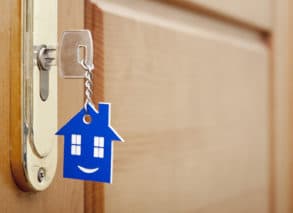
Protecting Your Rights After An Injury On Unsafe Premises
One of our attorneys recently told an audience at a community meeting something they probably did not realize: You have a RIGHT to be safe in places that advertise and invite you to spend your time and money. You have a right to be safe when you are in a bar, shop, eat out, withdraw cash from an ATM machine or fill your car with gas.
Business owners and managers have a responsibility to maintain their property, lighting the walkways, stairs and all physical properties in a reasonably safe manner. They must also work to ensure customers are reasonably safe from the violent behavior of others if they know this is a possibility. Some property owners still neglect to take adequate care for the safety of their clients and customers even though they have had repeated warnings.
The resulting injuries can mean pain, suffering, disability, lost wages and jobs, even loss of life.
In the most serious cases, a victim can sue or be a plaintiff in a negligent security case. Lawyers pursuing a negligent security case have several major responsibilities in helping get the facts before a judge or jury.
- Gather evidence. Lawyers and investigators gather witness statements, police reports, physical evidence, take photographs, anything available to help explain what happened.
- Review all 911 calls relating to the property. Checking back on these calls — going back as far as several years — can determine if the property has a troubled history.
- Perform a grid search. Performing a grid search provides a rough overview of the neighborhood problems and the nature of calls for help to the police over a given time period, generally the past three to four years. This establishes whether a location is a known “trouble spot.”
- Check for prior litigation. Investigators check whether the defendant or property has ever been the subject of a similar case or incident.
- Check insurance coverage. In order to determine, if there is the potential to receive a financial settlement, attorneys need to check insurance policies and those of all potential defendants to determine whether coverage exists and whether coverage is subject to one of the many exclusions or restrictions that deal with intentional acts or assault and battery.
- Determine the important facts. Attorneys need to determine the relationship between parties because it is much more difficult to convince a jury of owner negligence if the assault was committed by an ex-lover, relative or associate.
- Obtain aerial photos of the site. These are helpful when explaining the facts to a judge and jury in specific situations. A picture is worth 1000 words.
- Obtain tapes from surveillance cameras. Attorneys will immediately request any and all surveillance videos that may have existed at the subject property and nearby properties. Unfortunately, they may not still be there if you wait too long. These should be time-stamped and can provide helpful evidence.
- Obtain 911 tapes. Attorneys will obtain copies of the police 911 tapes and have them transcribed.
- Enlist qualified experts. Your lawyer should be willing to call on the testimony of highly trained and qualified security expert witnesses, and use them to fully develop and prosecute a serious inadequate security case.
If you or a loved one has been injured in a situation where someone was negligent, neglectful or provided inadequate security, you should consult with one of our attorneys and determine if you should pursue a negligent security case.
If you think you are a victim of an unsafe premise case call us toll-free at 888-217-1625, or our Milwaukee office at 414-488-6870, or our Appleton office at 920-335-1342.

